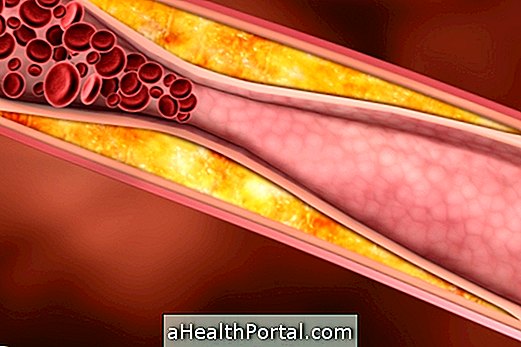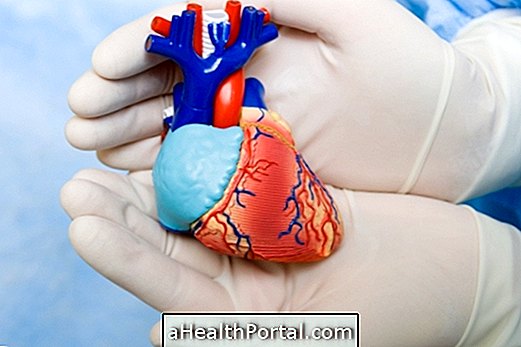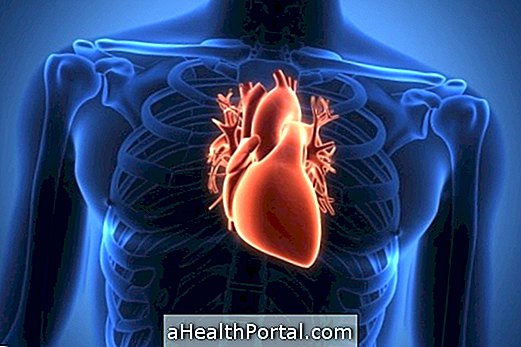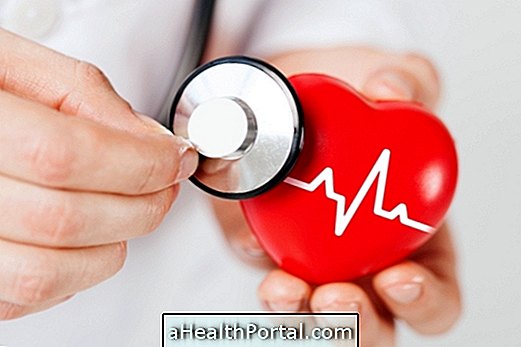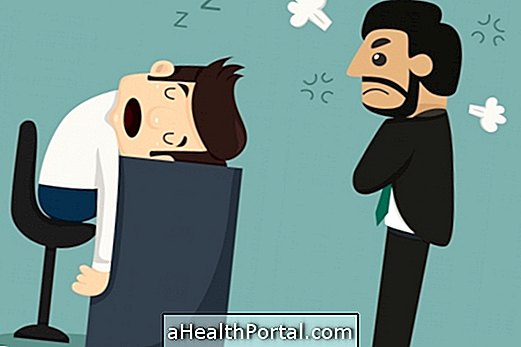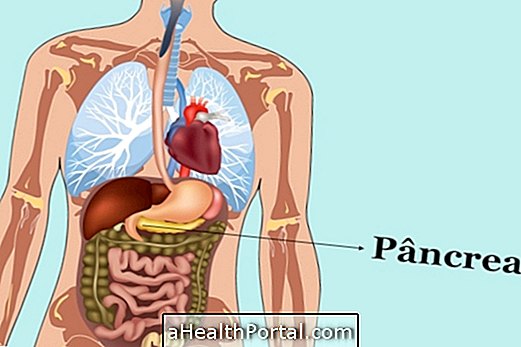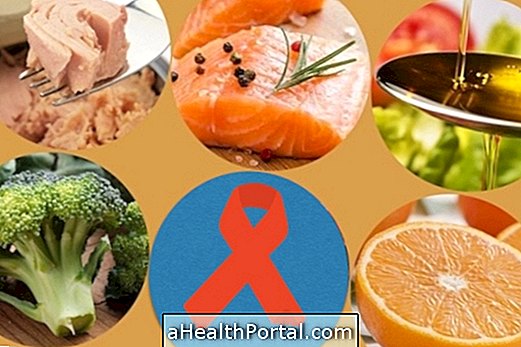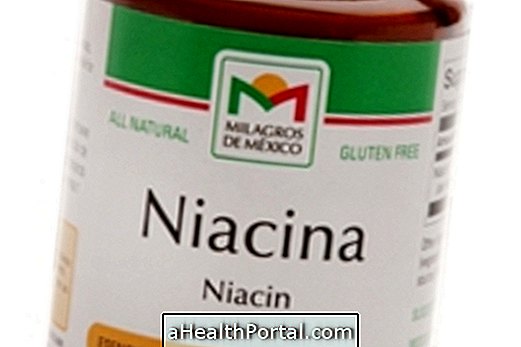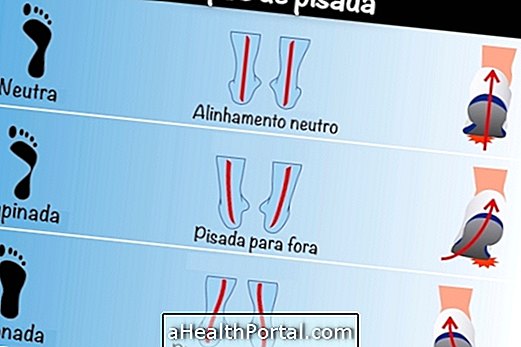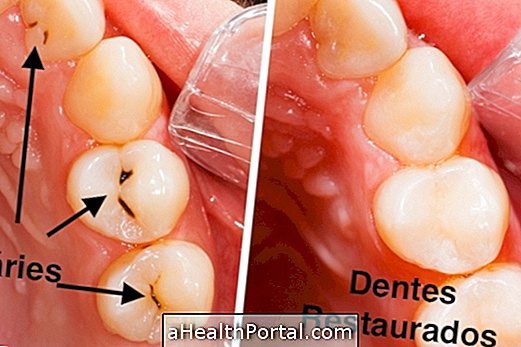Cardiogenic shock occurs when the heart loses its ability to pump blood in an adequate amount to the organs, causing a marked decrease in blood pressure, lack of oxygen in the tissues, and accumulation of fluid in the lungs.
This type of shock is one of the major complications of acute myocardial infarction and if not treated urgently can lead to death in almost 50% of cases. Thus, if cardiogenic shock is suspected, it is very important to go to the hospital immediately to confirm the diagnosis and initiate appropriate treatment.
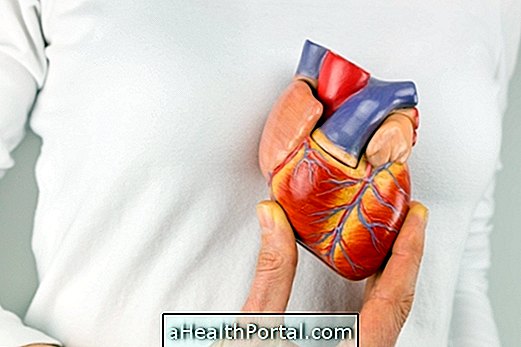
Signs and symptoms
Symptoms that may indicate a possible cardiogenic shock are:
- Rapid breathing;
- Exaggerated increase in heart rate;
- Sudden fainting;
- Weak pulse;
- Sweat without apparent cause;
- Pale skin and cold extremities;
- Decrease in the amount of urine.
In cases where there is accumulation of fluid in the lungs or pulmonary edema, shortness of breath and abnormal breathing sounds, such as wheezing, may also occur.
Since cardiogenic shock is most common after an infarction, these symptoms are also accompanied by the symptoms of a heart attack, such as a feeling of chest pressure, tingling in the arm, a sore throat, or nausea. See a more complete list of signs that may indicate a heart attack.
How to confirm the diagnosis
The diagnosis of cardiogenic shock needs to be done as quickly as possible in the hospital and so if it is suspected it is very important to go quickly to the hospital emergency. Your doctor may use some tests, such as blood pressure, electrocardiogram, or chest x-ray, to confirm cardiogenic shock and start the most appropriate treatment.
Possible causes of cardiogenic shock
Although infarction is the most common cause of cardiogenic shock, other problems can also cause this complication. Other possible causes include:
- Heart valve disease;
- Right ventricular failure;
- Acute myocarditis;
- Coronary artery disease;
- Cardiac arrhythmias;
- Direct trauma to the heart;
- Intoxication of the heart by drugs and toxins;
In addition, in the more advanced stage of sepsis, which is a widespread infection of the body, cardiogenic shock may also occur, resulting almost always in death. Check how to identify a sepsis, to start treatment and avoid cardiogenic shock.
How is the treatment done?
Treatment for cardiogenic shock is usually started as soon as the hospital is urgently needed, but then it is necessary to be admitted to an intensive care unit where various types of treatment can be done to relieve symptoms, improve heart function and facilitate circulation blood:
1. Use of medicines
In addition to the serum that is applied directly into the vein to maintain hydration and nutrition, your doctor may still use:
- Remedies to increase the strength of the heart, such as Noradrenaline or Dopamine;
- Aspirin, to decrease the risk of clot formation and facilitate blood circulation;
- Diuretics, such as Furosemide or Spironolactone, to decrease the amount of fluid in the lung.
These medicines are also administered directly into the vein for at least the first week of treatment and can then be taken orally when the condition improves.

2. Catheterization
This type of treatment is done to restore circulation to the heart if a heart attack has occurred, for example. For this, the doctor usually inserts a long, thin catheter through an artery, usually the neck or groin area, to the heart to remove a possible clot and allow the blood to flow properly again.
Understand more about how catheterization is done and what it does.
3. Surgery
Surgery is usually only used in the most severe cases or when symptoms do not improve with the use of medication or catheterization. In these cases, the surgery may be used to correct a heart injury or to perform a heart bypass, in which the doctor places another artery in the heart so that the blood passes to the region that is depleted of oxygen due to the presence of a clot.
When the heart function is very affected and no technique works, the last step of the treatment is to do a heart transplant, however, it is necessary to find a compatible donor, which can be quite complicated. Learn more about heart transplantation.
Main complications
The complications of cardiogenic shock are the failure of multiple noble organs such as kidneys, brain and liver, accounting for the majority of deaths of patients admitted to intensive care. These complications can be avoided whenever diagnosis and treatment are made early.

